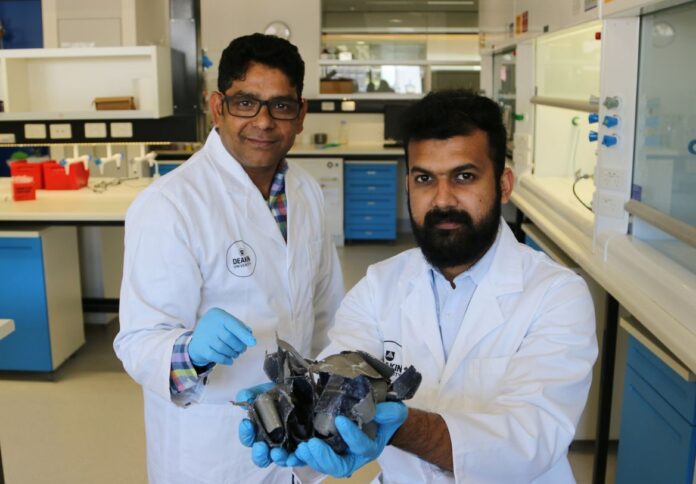
Scientists from Deakin University have successfully developed a process to extract silicon from end-of-life solar panels and convert it into a nanomaterial that can be used in the development of a new type of battery anode.
The study, conducted by researchers from Deakin’s Institute for Frontier Materials (IFM), comes as more than 100,000 tonnes of old solar panels are expected to enter Australia’s waste stream by 2035.
The nano-silicon, which is worth more than $45,000 per kilo, will be mixed with graphite to develop a new type of battery anode capable of increasing lithium-ion battery capacity by a factor of 10— a critical breakthrough in energy storage technology.
Dr Mokhlesur Rahman, lead researcher at IFM, said the newly developed process returns silicon collected from used cells to greater than 99 per cent purity, making it far greener, cheaper, and more efficient than any other technique currently on the market.
The Deakin process also takes regular-sized purified silicon and reduces its size to nanoscale through a special ball-milling process that does not use toxic chemicals.
“We are using that nano-silicon to develop low-cost battery materials that will help deliver the higher performing, longer lasting, affordable battery technology critically needed to drive Australia’s clean energy transition,” Dr Rahman said.
Rahman explained that in order to address the enormous issue of solar panel waste and develop a successful recycling program, scientists must find a way to harvest and repurpose the panels’ most valuable components.
“Solar panel cells are fabricated using high-value silicon, but this material cannot be re-used without purification, as it becomes highly contaminated over the 25 to 30 years of the panel’s life,” Rahman said.
Deakin’s new process comes after years of research from a team led by Alfred Deakin Professor Ying Chen, director of ARC Research Hub for Safe and Reliable Energy based at IFM in Geelong.
“This Deakin-developed technology – including purification, nano-silicon production and integration into new battery technology – is a giant leap forward in how we tackle the problem of solar panel waste,” Professor Chen said.
“Silicon recovered from end-of-life solar panels can be a massive, sustainable source of nano-silicon to meet future demand for raw battery materials. Helping to power the homes, transport and communities of the future,” Chen added.



















